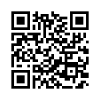- Focus and Scope
- Section Policies
- Peer Review Process
- Open Access Policy
- Archiving
- Publication Ethics
Focus and Scope
Diksi is an open-access journal published 1st time in January 1993 by the Faculty of Languages, Arts, and Culture, Universitas Negeri Yogyakarta. Based on the Decree of Ministry of Education, Culture, Research, and Technology, Republic of Indonesia, No. 79/E/KPT/2023, Diksi has been re-accredited in the journal indexing system in Indonesia through ARJUNA (National Journal Accreditation) and received Sinta 2 rank (S2) accreditation in 2022 - 2026. Diksi publishes original articles (based on research) or conceptual articles about languages, literature, and their teaching.
Section Policies
Articles
Peer Review Process
The submitted manuscript is first reviewed by the editors and must be free from plagiarism contents. The maximum limit of similarity is 20%. The submitted manuscript will be evaluated, whether it is suitable for our focus and scope or has a major methodological flaw.
At least two peer-reviewers will review every submitted paper. Reviewing process will consider novelty, objectivity, method, scientific impact, conclusion, and references. Reviewers' comments are then sent to the corresponding author for necessary actions and responses. The suggested decision will be evaluated in an editorial board meeting. Afterward, the editor will send the final decision to the corresponding author.
Open Access Policy
This journal provides immediate open access to its content on the principle that making research freely available to the public supports a greater global exchange of knowledge.
Archiving
This journal utilizes the LOCKSS system to create a distributed archiving system among participating libraries and permits those libraries to create permanent archives of the journal for purposes of preservation and restoration. More...
Publication Ethics
This is the statement of ethics for Diksi published by the Faculty of Languages and Arts of Universitas Negeri Yogyakarta. This statement was adapted from the principles of the Committee on Publication Ethics (COPE) and covers the code of ethics for chief editor, editorial board members, reviewers, and authors.
Articles published in Diksi is an essential building block in the development of a coherent and respected network of knowledge on education and those are a direct reflection of the writers and institutions quality. It is therefore important to agree upon standards of expected ethical behavior for all parties involved in the act of publishing: the authors, the journal editors, the peer reviewers, the publisher, and the society. Editors of Diksi are committed to guarantee that all procedures are directed merely to facilitate an objective and intellectual treatment. Further, the editors and reviewers evaluate manuscripts without regard to race, gender, sexual orientation, religious belief, ethnic origin, citizenship, or certain political and group interest. A software is used to avoid plagiarism among the articles.
Duties of Authors
- Have the responsibility of ensuring only new and original work is submitted. Make sure the article does not contain plagiarism.
- Must not reproduce work that has been previously published in other journals.
- Must not submit any articles that are being reviewed or considered by the journal to other journals simultaneously.
- Are only allowed to publish their work elsewhere after receiving a formal rejection from the journal or if their request to withdraw their work is officially accepted by the journal.
- Must inform the Chief Editor or the publisher of any inaccuracy of data in their published work so that correction or retraction of article can be done.
- Should make significant contributions and be held accountable for any shortcoming in their work.
Duties of Reviewers
- Must disclose any competing interest before agreeing to review a submission.
- Can refuse to review any submission due to a conflict of interest or inadequate knowledge.
- Review all submissions objectively, fairly and professionally.
- Reveal any ethical misconduct encountered while reviewing to the Chief Editor for further action.
- Should ensure the originality of a submission and be alert to any plagiarism and redundant publication.
- Must not discuss the content of the submission without permission.
- Adhere to the time allocated for the review process. Requests for extension to review the submission is at the discretion of the Chief Editor.
Duties of Editorial Board Members
- Actively contribute to the development and the greater good of the journal.
- Act as ambassadors for the journal.
- Continuously support and promote the journal.
- Review any work assigned to them.
Duties of Chief Editor
- Evaluate manuscripts fairly and solely on their intellectual merit.
- Ensure confidentiality of manuscripts and not disclose any information regarding manuscripts to anyone other than the people involved in the publishing process.
- Has the responsibility to decide when and which articles are to be published.
- Actively seek the views of board members, reviewers and authors on how to improve/ increase the image and visibility of the journal.
- Give clear instructions to potential contributors on the submission process and what is expected of the authors.
- Ensure appropriate reviewers are selected/identified for the reviewing process.

2.png)














